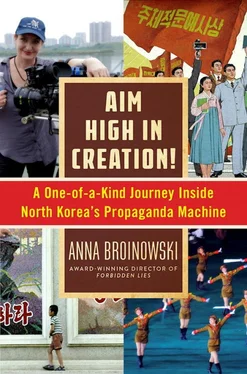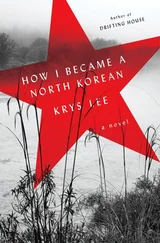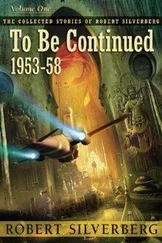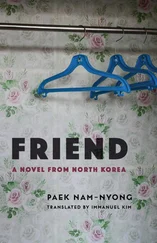I clasp Pak’s hands tight. I wish I could disappear with him into the darkness and meet his family. I wish I could take him back to Sydney to meet mine. I wish I could give him a hug and tell him how much he’s taught me. I wish we could make a film together. Instead, I climb quietly into the van, and Pak bends down to pick up his satchel. The driver does a rapid U-turn, and I peer back through the night to see my mentor hobbling over the dirt in his neatly pressed chinos, picking his way over the rubble to whatever place he calls home.
MS. K’S BOSS IS DRUNK AGAIN. We’re in the meeting room on Floor Five, facing his muu-muued sidekick and two Party officials. The self-entitled smiles on their smooth young faces indicate that these boys are not here on merit, but because they have fathers higher up in the ranks. The problem of Pyongyang’s privileged twentysomethings, who grow up sheltered from hardship, is tackled in the 1997 drama Myself in the Distant Future . The playboy anti-hero ignores the pleas of his hard-working father and spends his time playing Pac-Man and cruising Pyongyang in a Japanese convertible. Then he falls in love with the humble labourer who has built his high-rise condo. After many ideological discussions on the banks of the Taedong, she finally converts him to the Juche ideal of self-sacrifice—and he devotes himself to serving the nation.
“Ms. K tells me today you will visit the DMZ,” says the boss, and I shift on my chair, trying to cushion my bruised coccyx. North Korean funfairs may contradict the horror stories we hear in the West—but North Korean massages do not. Last night, Nic and I visited the Spa & Fitness Centre on the Underfloor for a much-needed shiatsu. I went in second and found Nic spread-eagled on a bench, glaze-eyed with shock. The masseuse pulled the curtains shut before I could find out what was wrong. “Off!” she ordered, adjusting the sweatband on her white seventies tennis ensemble. I stripped and lay on my back, and she tucked a rice sack between my shoulder blades. Then she placed her muscled hands on my shoulders and slammed them down hard. Crack! went my back, and she laughed. “You feel pain?” she asked.
“Yes. Pain!” I grunted—and she proceeded to crack every bone in my body, with intensifying force. By the time she’d flipped me on my stomach, I was ready to surrender, but my tormentor had something else in mind. She jabbed one thumb on top of my skull, and shoved the other up my arse—avoiding digital sodomy by a millimetre. Then she rammed her thumbs towards each other and pinioned me to the bench—like a pig on a spit. “Pain,” she observed, with professional pride. I was too traumatised to speak.
I am now fully prepared for whatever surprises the most militarised border on earth has in store after my night of pain. “I’m looking forward to seeing the DMZ,” I tell Ms. K’s boss. “But I am worried about what will happen to our footage at the airport.”
Ms. K’s boss nods sympathetically. “Comrade Guk is doing you a favour by checking your rushes,” he says. “Hopefully, you will have a smooth exit. Isn’t that right, Comrade K?” Ms. K emits an unhelpful giggle, the only response she ever gives her boss. He frowns. “I want to apologise on behalf of Korfilm for Comrade Wang,” he says. “Apparently, his sound recording was not up to scratch.”
“No, no, he was wonderful,” I enthuse. “And so were your filmmakers. They have taught me so much. In fact, I should apologise for my bad acting. I only shoot video, so it was wonderful to learn about the complex demands of celluloid.” The Party officials nod, pleased by my deference to North Korea’s artistic superiority.
“You all taught each other,” Ms. K’s boss says with finality, and nods impatiently at his sidekick. She pulls two contracts from a red velour folder and slides them towards me.
Korfilm’s demands are set out in bold copperplate, in English and Korean. The no-narration clause is still there. “Bugger,” I say. “I thought we were deleting 3.1?” Ms. K looks at me, surprised, then giggles apologetically at her boss. He glances at the offending clause, and bursts out laughing: “Yes, yes, that is just a stupid mistake by our translators. The Korean version is the right one. Just sign that.” They all stare at me, and Ms. K gives me a pen. There’s a pleading look in her eyes.
I have no idea what the Korean contract says. I certainly don’t trust Ms. K’s boss. Then I think of Nic on the forty-seventh floor, recovering from her massage and packing the little Korean dolls she’s bought for her mother. Nic needs to get out of here as much as I do. She’s put my film before her safety, and I’m the reason she’s here. I sign the contract blind, and give Ms. K’s boss an envelope with €30,000 in cash.
“Wonderful!” says Ms. K’s boss, lurching to his feet. “The contract and the money are not important. What is important is our bond, and your important film.” He picks up the duty-free bag of scotch, which, after my last disastrous attempt, I’ve prudently left by the door. “Why so heavy?” he asks, letting out a comic groan. “It’s important alcohol,” I say coolly, not bothering to hide my annoyance with this hypocritical drunk. The Party officials do a double take, but Ms. K’s boss cackles. “Wonderful,” he says again—and squeezing unsteadily around the table, he staggers out of the room.
Ms. K and I look at each other, two working mums in our forties, and share a moment of deliciously sexist disdain. We’ve both had to go the extra mile, so men above us can take the credit. There are exceptions of course, but in general, I’ve found women bosses to be more collaborative. I doubt Ms. K has had the luxury of finding this out.
“How can you work for someone like that?” I ask her, when we’re safely back in the corridor. “It’s 9 a.m. and he was pissed! You’ve done the work, and he can’t even get a bloody translation right! You should be the boss of Korfilm.”
Ms. K gives me her rueful smile: “Maybe I will be, if you make a good enough film.” I look at the carpet, riddled with guilt. A “good” film in North Korean terms, the one guaranteed to get Ms. K promoted, would be a Kim Jong Il puff piece. I already know my film cannot be an apology for the Kims’ brutal regime. But where it will end up sitting, in that grey void between the West’s “beyond evil” story and the propaganda of Pyongyang, remains a mystery.
“Let us go on a road trip,” says Ms. K happily and ushers me to the stairs. Her friendly smile makes me want to ignore the brutality altogether and make a film that simply humanises the generous North Koreans I’ve met. As we step into the stairwell, a door behind us swings open and a young woman with a tense expression hurries out. There’s just enough time before she closes the door to glimpse a bank of monitors, displaying what appears to be security-camera footage. Two, maybe three, men in headphones sit in a row, gazing intently at the screens. The pictures they are watching look a lot like the hotel rooms on my floor. I could be wrong: I’ve had less than three seconds to look. But what I’ve seen is enough to turn the rumour that Floor Five is used to spy on foreign guests from a paranoid fancy to a real possibility.
“It’s a shame the enemy aren’t around today,” a soldier muses to our driver. We’re driving under concrete tank traps, poised to drop onto the narrow road that leads to the DMZ. The famous border cuts Korea in half across the thirty-eighth parallel: a latitude chosen somewhat arbitrarily by the Americans and the Soviets at the end of World War Two to delineate their spheres of political influence. Contested by both Kim Il Sung and his American-backed adversaries in the South following the creation of the socialist Democratic Peoples’ Republic of Korea and the capitalist Republic of Korea in 1948, the continually shifting border was finally fixed permanently in 1953—when the DPRK, China, and the UN command forces signed the armistice agreement to end the Korean war.
Читать дальше












